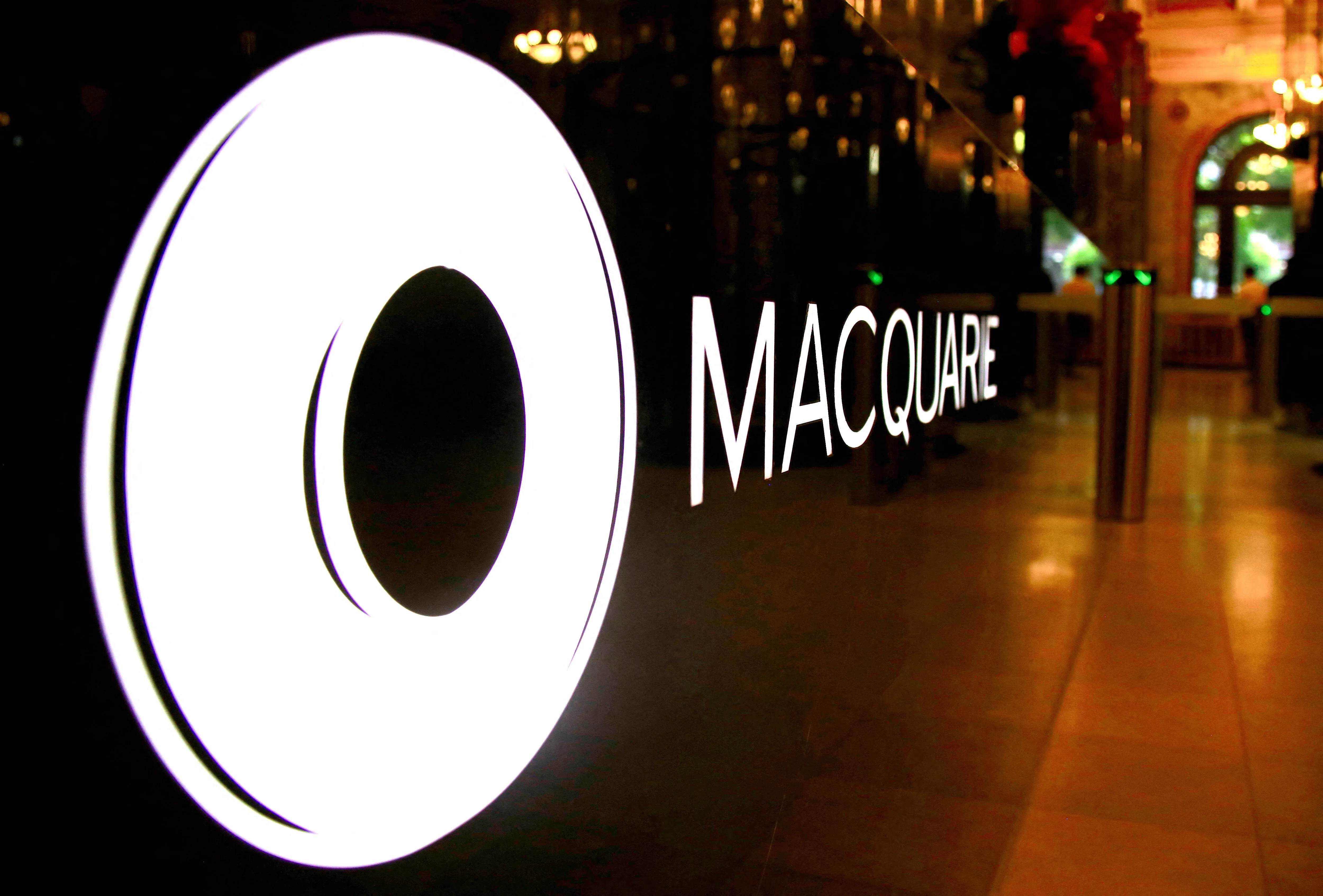TOP Australian investment bank Macquarie Group reported its annual profit fell by a third, the sharpest decline in 15 years, as stabilising energy markets hammered its commodities trading unit and it made less money selling green energy assets.
The result on Friday came after several years of blockbuster profits from the financial giant’s commodities division, which had benefited from unusually volatile European energy markets after Russia’s invasion of Ukraine and heightened demand for oil and gas in North America.
Profit from the Sydney-based company’s main earner fell 47 per cent in the year ended March 31. Along with what the company said was a decision to keep green energy assets in its broader portfolio, the commodities unit dragged down overall profit by 32 per cent to A$3.5 billion.
The company cut its final dividend to A$3.85 per share from A$4.50 a year earlier.
“It’s obviously been a more challenging environment from a realisation perspective,” chief financial officer Alex Harvey said on a call with analysts, referring to green energy asset sales.
Shares of Macquarie were down 2 per cent, against a 0.6 per cent gain on the broader market, as analysts noted a sharper-than-expected slump from the commodities unit but a headline result that was in line with forecasts.
GET BT IN YOUR INBOX DAILY
Start and end each day with the latest news stories and analyses delivered straight to your inbox.
“Net, headlines show an inline result albeit quality looks soft,” analysts at Jarden wrote in a client note.
The company did not give specific profit guidance but said it expected commodities income to be “broadly in line” with the 2024 result in the short term and higher investment-related income from green investments.
For Macquarie, “FY24 is a trough year with activity set to rebound in FY25”, Jefferies analysts said in a note.
Though Macquarie’s commodities business delivered nearly half its profit, the bank said it grew earnings at its Australian retail banking unit, which provided about a fifth of overall profit. The division grew mortgages faster than the overall market and now has 5.3 per cent of the country’s A$2 trillion in home loans.
The company’s investment banking and advisory arm, Macquarie Capital, which supplies about a sixth of profit, lifted earnings by 31 per cent thanks to growth in its private credit portfolio, offsetting lower fee income from mergers and acquisitions due to weaker deal flows.
Total M&A volumes globally climbed 30 per cent to about US$755.1 billion in the first three months of the year after a downbeat 2023, according to data from Dealogic.
“There’s a huge pent-up pool of transactions to happen,” Macquarie CEO Shemara Wikramanayake told reporters. “Buyers and sellers have to have confidence that the market has settled. We’re starting to see that.”
The earnings downturn played out in declines in pay at the company nicknamed the “millionaires factory”.
Wikramanayake, the highest-paid employee, collected A$25 million for the year, down from A$33 million the prior year, due to a reduced profit share, according to Macquarie’s annual report that was also published on Friday.
Macquarie’s former head of commodities and global markets, Nick O’Kane, previously the company’s top-paid employee, collected A$1 million for the year, down from A$57 million the prior year, after leaving the company in March without serving the amount of time required to get his profit share for the year. REUTERS






